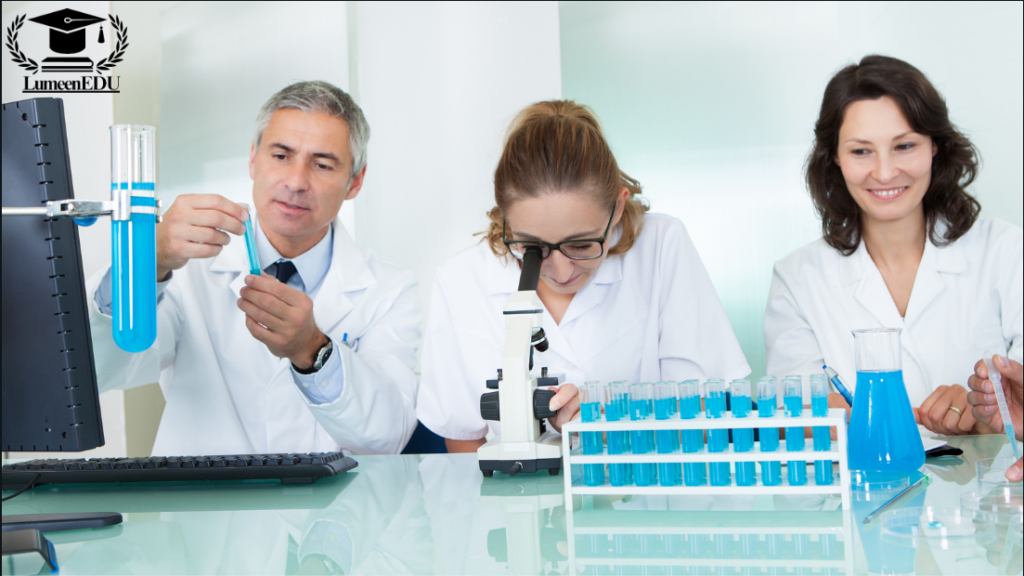
Exploring the World of Paramedical Sciences: A Vital Force in Healthcare.
The healthcare system is a complicated network of experts that collaborate to deliver patient care. While physicians and nurses frequently steal the spotlight, a key, sometimes unsung, force works behind the scenes: paramedical personnel. These competent personnel provide the foundation for diagnostic services, therapeutic treatments, and emergency medical care. This research dives into the broad field of paramedical sciences, highlighting its vastness, specialties, and the significant contribution these professionals make to our well-being.
Defining Paramedical Sciences:
Paramedical sciences are a diverse set of healthcare disciplines that assist medical professionals in detecting, treating, and preventing illness. These jobs need technical skill, patient engagement, and a strong feeling of service. Unlike physicians, who prescribe therapy, paramedical staff perform particular operations, operate equipment, and offer direct patient care while under medical supervision.
The Scope of Paramedical Careers:
The sector provides a variety of career routes, each requiring unique skills and training. Some popular specialties include:
- Medical Laboratory Technology: These practitioners conduct critical diagnostic tests on biological fluids and tissues, giving vital information for illness identification and therapy monitoring. Their work requires modern equipment and rigorous approaches, which allow doctors to make educated judgments.
- Radiology/Imaging Technology: These professionals use imaging technology including X-ray machines, CT scanners, and MRI machines to acquire inside pictures of the body. These photos are critical for identifying injuries, illnesses, and other medical issues.
- Physiotherapy: Physiotherapists use exercise, manual therapy, and other approaches to help patients regain mobility and function while also reducing discomfort. They are essential in the recovery process after an injury, surgery, or persistent sickness.
- Occupational Therapy: These specialists assist individuals with physical, mental, or developmental impairments in developing, recovering, or maintaining the skills required for daily life and employment. They aim to improve independence and quality of life.
- Emergency Medical Technicians (EMTs) / Paramedics: These first responders give patients with quick medical assistance in emergency circumstances. They stabilize patients on the spot and transport them to hospitals, frequently making vital decisions under duress.
- Operation Theatre Technology: These technicians maintain the sterile atmosphere and equipment in operating rooms, supporting surgeons prior to, during, and after surgeries. Their painstaking effort assures patient safety and efficient surgical procedures.
- Dialysis Technology: These specialists run dialysis equipment, which remove waste materials from the blood of patients with renal failure. They give vital care to these people, enhancing their quality of life.
The Importance of Paramedical Personnel:
Paramedical personnel are critical to the operation of contemporary healthcare. They:
- Provide key diagnostic services: Medical laboratory and imaging technicians collect critical data for illness identification and therapy planning.
- Provide crucial therapeutic interventions: Physiotherapists, occupational therapists, and dialysis technicians enhance patients’ results and quality of life.
- Provide rapid emergency medical care: EMTs and paramedics perform life-saving interventions in urgent situations.
- Support efficient medical procedures: Operation theatre technicians guarantee that surgical procedures run smoothly.
- Improve the patient experience: Paramedical workers frequently connect directly with patients, offering comfort, support, and knowledge.
Pursuing a Career in Paramedical Science:
There are several educational options available for people interested in entering the industry. This includes:
- Diploma courses provide specialized training in various paramedical fields.
- Bachelor’s degrees offer a more thorough education that includes both academic knowledge and advanced practical skills.
- Choosing the appropriate course is determined by your professional objectives and desired degree of skill. It is critical to choose
- programs offered by reputable schools with extensive industry links and skilled teachers.
The Future of Paramedical Sciences:
The subject of paramedical sciences is continually developing as technology advances and healthcare demands change. The need for qualified paramedical workers is likely to increase, creating exciting career prospects for individuals who have the appropriate training and devotion. Embracing technology, continual learning, and a patient-centered approach will be critical to success in this evolving sector.
Paramedical personnel are the hidden heroes of healthcare, delivering critical services that directly affect patient well-being. Their knowledge, devotion, and compassion are critical to the efficient operation of the healthcare system. Exploring the broad realm of paramedical sciences allows us to obtain a better understanding of their critical role in our collective health.
